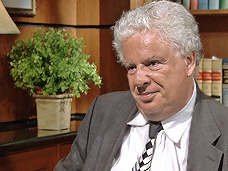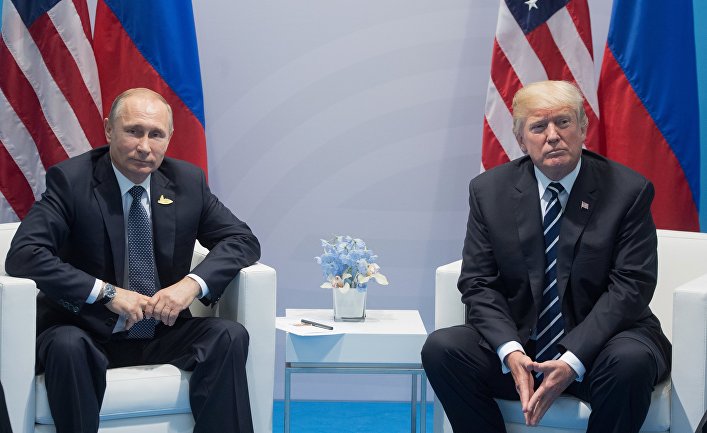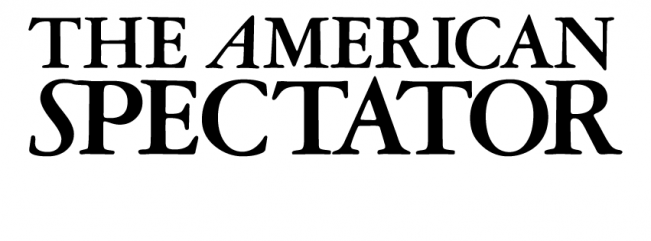
Martin Sieff
Martin Sieff – Chief Foreign Correspondent of the Globalist and Senior Fellow of the American University in Moscow, Former Chief Foreign Correspondent of the Washington Times
Samuel Huntingdon, the late, great American political scientist who died four years ago was right: the world has become a multi-polar place. And saying it isn’t won’t make it so. We see this in the latest row over Russia’s new law, implemented last November, requiring all Russian non-governmental organizations (NGOs) involved in political activities or receiving foreign funding to register as foreign agents.
This law has attracted much criticism in the United States and Western Europe. Ironically, a lot of the free market conservatives who have led the charge against it are highly critical of the activities of other NGOs around the world, especially ones active on global warming and other environmental issues, claiming they have too much influence and are accountable to no democratic political process. As the old saying goes, it all depends on whose ox gets gored.
However, this row, also predictably, has been escalating to a point where it threatens to further poison U.S.-Russian relations.
Before leaving office, former Secretary of State Hillary Clinton said that the United States would find a way to bypass the new law. On March 28, State Department spokeswoman Victoria Nuland reconfirmed this policy when she announced that the U.S. government’s funding of NGOs in Russia would continue. "We are providing funding through platforms outside of Russia for those organizations that continue to want to work with us.”
Nuland, it should be noted, did not frame this policy. She is a highly experienced, able and respected veteran U.S. Foreign Service officer. Whether she agrees with the statement or not is immaterial: She was just doing her job. She was expressing official U.S. government policy, which has clear bilateral support in Washington. Yet its actual radicalism and very real dangers have gone entirely un-noted in the mainstream U.S. media.
For if it is morally and even diplomatically permissible for the U.S. government to openly fund organizations in foreign countries, in defiance of the laws of those States, what is to stop other Nations from openly funding subversive and destabilizing organizations in defiance of the national laws of the United States, or indeed, any of its allies?
The Russian government, again predictably, responded with anger to Nuland’s statement. On March 30, the Foreign Ministry in Moscow accused the U.S. State Department of meddling in Russia’s internal affairs by continuing to fund Russian NGOs.
"We view the declaration made by the official representative of the State Department, Victoria Nuland, that the United States will continue financing individual NGOs within Russia via intermediaries in third countries, bypassing Russian law, as open interference in our internal affairs,” it said in an official statement posted on its website and reported by the RIA Novosti news agency.
Agora, a Russian human rights organization, claimed last week that the Russian government has used that law against 80 NGOs so far. Russian human rights organizations have reacted angrily to the new legislation. Russia's oldest rights organization, the Moscow Helsinki Group, has said it would rather shut down than comply with the law.
On December 7, Russian Prime Minister Dmitri Medvedev accused Western critics, especially in the United States, of applying a double standard in criticizing the new law. "The law only concerns those NGOs that engage in politics and receive money from foreign governments,” he said. "Imagine if an NGO in the U.S., dealing with politics, received money from the Russian federal budget. There would be an outcry.”
Indeed there would.
What we see here is a growing and very dangerous self-righteousness that is increasingly shaping the foreign and strategic policies of major Western nations. The new policy of official, open U.S. support for Russian NGOs, acting in defiance of the national law of their own country, is very dangerous for the United States, the American people and their allies.
It seriously increases tensions between the world’s two main strategic nuclear superpowers and it establishes a reckless precedent for open interference in the affairs of other nations that could easily be undertaken by other governments against the United States.
The row also highlights a growing rift between Western democracies, principally the United States and the European Union, who support the unrestrained democracy and human rights activities of NGOs, and major governments around the world that regard some NGO activity as a challenge, or even a threat, to their own national sovereignty.
Russia is far from being alone in its concerns and resentments. On April 2, Nuland, on behalf of the State Department, also criticized a new NGO law in Egypt passed by its new Muslim Brotherhood-dominated government.



_jpg/250px-ElbeDay1945_(NARA_ww2-121).jpg)







